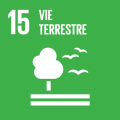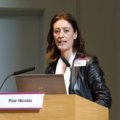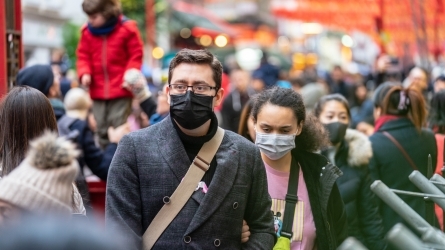
LIVE ONLINE -COVID-19: ethical, legal and social issues
Description
The activity aims to expose the main ethical, legal and social issues that the COVID-19 pandemic has brought to our societies. To this end, the course brings together a multidisciplinary group of experts who will address different topics of relevance. We will start by looking at the reality in which we are moving, both from an epidemiological and a crisis management point of view. Then we will enter into very complex ethical issues, such as triage or conducting clinical trials in extreme situations. Finally, we will analyse legal challenges such as forced confinement, data processing, whether or not to prosecute fake news, etc. To this end we will use a simple format: very short presentations (20 min), with a discussion space (10 min) for attendees.
Objectives
To expose to the public the main ethical, legal and social problems of the COVID-19
Encourage an enriching debate that shows the most challenging issues that we have to face
To counterbalance the different views to understand the divergences between the experts
Activity directed to
- All public
Program
17-06-2020
Presentation by the Director of the activity
- Iñigo de Miguel Beriain UPV/EHU - Investigador distinguido
“Pandemia por SARS-CoV-2: Origen y drama en tres actos“
- Juan Martínez Hernández Hospital Universitario de Móstoles - Servicio de Medicina Preventiva
Break
“¿Es posible gestionar una pandemia?“
- Juanjo Rubio Ingeniero Biomédico. Ha sido gerente del Servicio Navarro de Salud, y director de Mondragón Health
Break
“¿Qué fue de la salud pública?“
- César Cierco
Break
“Triaje en tiempos de pandemia“
- Federico de Montalvo Jaaskelainen
Break
“La desprotección jurídica de las personas con discapacidad y sus familias ante el COVID-19“
- Inmaculada Vivas Tesón Universidad de Sevilla - Catedrática (acreditada) de Derecho civil
“Geolocalización: ¿solución o problema?“
- Lorena Pérez Campillo UPV/EHU - Doctora en Derecho
18-06-2020
“Modera la jornada“
- ELENA ATIENZA MACIAS UPV/EHU
“Política, democracia y medios de comunicación en tiempos de pandemia“
- Vicente Bellver Capella Universitat de València
Break
“Las noticias falsas en las redes sociales“
- Carlos Maria Romeo Casabona UPV/EHU - Catedrático Derecho Penal
Break
“Medidas sanitarias anti-Covid y restricción de derechos fundamentales: alcance de su control judicial“
- Joaquín Cayon de las Cuevas IDIVAL-Universidad de Cantabria - Director del Grupo de Investigación en Derecho Sanitario y Bioética
Break
“COVID-19: Reclamaciones por responsabilidad en el ámbito sanitario“
- Ofelia De Lorenzo Aparicio De Lorenzo Abogados
Break
“Ensayos clínicos y uso compasivo de medicamentos en tiempos de pandemia“
- Miguel Angel Ramiro Aviles Universidad de Alcalá - Profesor Titular de Filosofía del Derecho. Director Cátedra DECADE-UAH. Coordinador de la Clínica Legal.
Break
“Problemas jurídicos que plantea el uso de datos personales para la lucha contra la pandemia“
- Pilar Nicolás Jiménez UPV/EHU - Investigadora Doctora Permanente
Directors
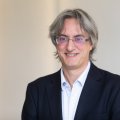
Iñigo de Miguel Beriain
UPV/EHU
Licenciado en Ciencias Económicas y Empresariales licenciado y doctor europeo en Derecho, doctor en Filosofía. Actualmente ocupa un puesto de investigador distinguido en el Grupo de Investigación de la Cátedra de Derecho y Genoma Humano del Departamento de Derecho Público. También es Ikerbasque Research Professor. Ha participado en más de diez proyectos de investigación financiados por la Comisión Europea. En uno de ellos, PANELFIT, fue el autor de la propuesta ganadora. Actualmente forma parte de su equipo de coordinación. También ha participado en ocho proyectos de investigación nacionales, casi todos orientados a la bioética y el derecho de las nuevas tecnociencias. Ha publicado seis libros y más de 60 capítulos de libro, quince de ellos en textos en inglés en editoriales como Springer, Routledge o Cambridge Unversity Press. También ha publicado más de sesenta artículos, más de 25 en revistas indexadas en ISI y SCOPUS (8 en primer cuartil).
Speakers

ELENA ATIENZA MACIAS
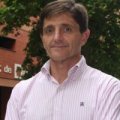
Vicente Bellver Capella
Universitat de València, Catedrático
Full professor at the University of Valencia (Spain) where he teaches Legal Theory, Philosophy of Law, Human Rights and Bioethics. His fields of research are Human Rights, Political Ecology, Bioethics and Biolaw. He has published three books: “Ecología: de las razones a los derechos”, “¿Clonar? Ética y Derecho ante la clonación humana” (translated into Italian) and “Por una bioética razonable”. He has also edited six books and written more than 180 articles in scientific journals and book chapters. He was temporary Magistrate of the Provincial Court of Valencia, Director of the Menéndez Pelayo International University in Valencia and General Director of Scientific Policy of the valencian government. He also was member of the Comité Directeur pour la Bioétique (CDBI) of the Council of Europe and is member of the Spanish Bioethics Committee and of the Pontifical Academy for Life.
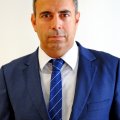
Joaquín Cayon de las Cuevas
Universidad de Cantabria
Joaquín Cayón es Doctor en Derecho y Director del Grupo de Investigación en Derecho Sanitario y Bioética (GRIDES) del Instituto de Investigación Sanitaria “Marqués de Valdecilla” (IDIVAL), centro mixto de investigación integrado por la Universidad de Cantabria y la Consejería de Sanidad de la que es jefe del servicio de asesoramiento jurídico. Asimismo, es profesor asociado doctor del Departamento de Derecho Privado de la Universidad de Cantabria. Desde 2017 es Secretario General de la European Asociation of Health Law y, desde 2015, Coordinador del Consejo Directivo de la Red Iberoamericana de Derecho Sanitario. Ha participado como profesor invitado en universidades europeas y americanas de más de 18 países. Autor y coordinador de varios libros y de más de setenta capítulos de libro y artículos en revistas especializadas. Actualmente, participa en la Jean Monnet Network on Health Law and Policy, liderada por Dalhousie University (Canadá) y financiada por la Comisión Europea.

César Cierco
Universidad de Lleida, Profesor Titular de Universidad

Ofelia De Lorenzo Aparicio
• Socia en DE LORENZO ABOGADOS • Máster Universitario en Derecho Sanitario. Universidad San Pablo CEU (Madrid) • Mediadora Sanitaria • Miembro de la Junta Directiva de la Asociación Española de Derecho Sanitario (AEDS) • Vocal del Comité de Ensayos Clínicos de HM Hospitales • Vocal del Comité de Ética Asistencial de HM Hospitales • Secretaria del Consejo Asesor de Sanidad del Ministerio de Sanidad (Orden SSI/119/2018, de 13 de febrero, por la que se dispone el cese y nombramiento de Vicepresidente, Secretaria y Vocales del Consejo Asesor de Sanidad).

Federico de Montalvo Jaaskelainen

Juan Martínez Hernández
Doctora en Derecho. Miembro de la Cátedra de Derecho y Genoma Humano de la UPV/EHU. Imparte docencia en el grado de Derecho (Derecho Penal) de la UPV/EHU y de Derecho Biomédico en másteres de varias universidades. Ha participado en proyectos de investigación nacionales e internacionales sobre Bioderecho, o como partner para el análisis de las implicaciones jurídicas de los objetivos y tareas de proyectos del ámbito de las biociencias. Es vocal del Comité de Ética del ISC III y del de la UPV/EHU. Miembro del Ethics and Policy Committee del International Cáncer Genome Consortium. Coordina el International Legal and Ethical Advisory Board de la Rare Anaemias Disorders European Epidemiological Platform. Forma parte del proyecto 1 millón de genomas de la Comisión Europea, de la Global Alliance for Genomics and Health y del Genetic Discrimination Observatory.

Lorena Pérez Campillo
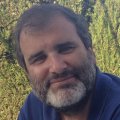
Miguel Angel Ramiro Aviles
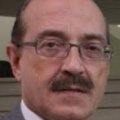
Carlos Maria Romeo Casabona
UPV/EHU
He is Professor of Criminal Law and Head of the Chair of Law and Human Genome Research Group, University of the Basque Country. He has been Founder and Director, Center of Criminological Studies and Dean School of Law, Universidad of La Laguna. J.D., Ph.D. (Law), and Ph.D. (Medicine), University of Zaragoza, High. Diploma (Criminology), University Complutense of Madrid. He has been visiting Professor at Universities of Bonn, Munich and Lüneburg; Paris II and Montpellier; Stanford (CA); La Sapienza and Tor Vergata in Rome; Max Planck Institute, Freiburg, and at the Kennedy Institute of Ethics, Georgetown University. He is a member of the European Group of Ethics in Science and New Technologies of the European Commission, of the Bioethics Committee of the Council of Europe, Chairman, Clinical Research Ethics Committee of the Basque Country; former member of the Spanish Bioethics Committee, of the European Research Area Board of the European Commission.
Ingeniero biomédico con experiencia internacional en transformación de organizaciones de salud mejorando la seguridad del paciente y los resultados asistenciales con tecnologías digitales. Ha trabajado como ingeniero y directivo en organizaciones públicas de salud y en empresas multinacionales de tecnología y consultoría para la salud. Tiene formación en innovación, gestión y dirección de organizaciones de salud, interpretación, coaching, psicodrama, yoga y teatro social. Ha sido director del Servicio Navarro de Salud, Mondragon Health y sinapsis.healthcare.

Inmaculada Vivas Tesón
Summary
Conclusions sent by the direction of the Summer Course
Sustainable development goals
Agenda 2030 is the new international development agenda approved in September 2015 by the United Nations. This agenda aims to be an instrument to favour sustainable human development all over the planet, and its main pillars are the eradication of poverty, a reduction in equality and vulnerability and fostering sustainability. It is a unique opportunity to transform the world up to 2030 and guarantee human rights for all.

12 - Responsible consumption and production
Guarantee sustainable modalities of consumption and production. Key issues: sustainable management and efficient use of natural resources, reduction of chemical particles released to the atmosphere, water and soils, reduction of waste products, recycling, reuse and reduction, sustainable practices, sustainable public procurement, sustainable lifestyles, rationalisation of inefficient subsidies for fossil fuels.
More information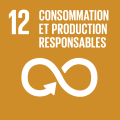
15 - Life on land
Protect, establish and foster the sustainable use of terrestrial ecosystems, manage forests sustainably, fight desertification, hold back and reverse the degradation of land and delay the loss of biodiversity. Key issues: the fight against desertification, reforestation, conservation, the regeneration and sustainable use of terrestrial ecosystems, natural habitats, biodiversity, invasive exotic species, integration of the values of ecosystems into planning, poaching.
More information